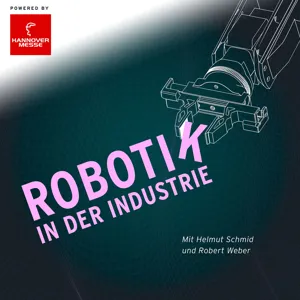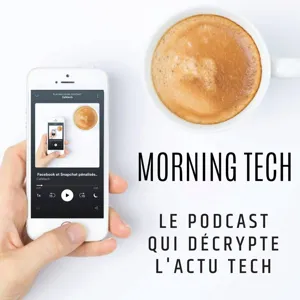Podcast Summary
Neuro's Autonomous Vehicles for Goods Delivery: Neuro's autonomous vehicles are designed specifically for carrying goods, not passengers, which could revolutionize mundane errands like grocery shopping and food takeout. They have already been tested successfully with partners like Dominoes and Kroger grocery stores.
Neuro, a company co-founded by Dave Ferguson, makes fully autonomous vehicles that are meant for carrying goods, not passengers. This innovative approach to self-driving cars implies that mundane errands, such as grocery shopping or food takeout, could be performed by these cars. Neuro's zero-occupant self-driving vehicles have already been tested and made deliveries with well-known partners like Dominoes and Kroger grocery stores in Silicon Valley and Houston. Dave Ferguson's love affair with the idea of providing intelligence to physical agents and enabling them to make their own decisions in the world gave birth to Neuro. His extensive experience in robotics and computer science supports his vision of applying robotics to real-world problems. Now, his dream is a reality as Neuro consistently strides towards innovation and progress.
From DARPA Challenges to Personal Robotics: The Journey of Dave Ferguson: Dave Ferguson, an expert in robotics, showcases the advancements and innovation in personal robotics that are allowing robots to become a part of our daily lives.
Dave Ferguson, a robotics expert, talks about his journey from working on DARPA challenges to creating a personal robotic butler for Intel. During the DARPA challenge, he joined Intel and worked on developing robots to advance the state of personal robotics, including the Herb robot that could tidy up your home. However, despite the excitement of the world of finance, Ferguson found it unfulfilling and looked for a new challenge. This journey showcases how the field of robotics has advanced over the years and how talented individuals are exploring innovative ways to make robots a part of our daily lives.
From Finance to Robotics: The Journey of Neuro Co-Founder Dave Ferguson: Dave Ferguson left the finance industry to follow his passion for robotics, eventually co-founding his own company, Neuro, to explore the potential for robotics beyond self-driving cars in various industries.
Dave Ferguson left finance and trading to return to his passion for robotics, eventually joining the self-driving car project at Google. He worked on the prediction system, incorporating early machine learning into the project before eventually co-founding his own general robotics company, Neuro. Ferguson and co-founder Jay-Z believed there was a greater opportunity for robotics beyond self-driving cars and focused on creating a company with applications in various industries. With the relationship between humans and technology transforming over the past few decades, the potential for robotics in various fields continues to grow.
How Neuro is Transforming Local Commerce with Self-Driving Delivery: Neuro aims to give people time back, reduce emissions, and strengthen local communities by using robotics to revolutionize delivery. With a 92 million dollar investment, they've built a self-driving prototype to achieve their goal.
The physical world will undergo significant transformation in the next 20 to 30 years with the advent of useful physical devices that will make our lives better. Neuro, a self-driving delivery vehicle company, aims to use robotics to better everyday life. The company was started with the goal of transforming local commerce through self-driving delivery. Nearly half of all personal vehicle trips taken today are for shopping and running errands, representing a massive opportunity for Neuro to give people time back, reduce emissions, strengthen local communities, and reduce food deserts. The company raised 92 million dollars in a series A round and built an initial prototype by converting a Nissan Leaf into a self-driving vehicle.
Nuro: Redefining Delivery with Autonomous Vehicles: Nuro designs and operates autonomous vehicles for delivering goods, allowing for safety optimizations without having to accommodate passengers. Their goal is to replace small errands and grocery shopping trips with autonomous self-driving vehicles.
Nuro is a company that designs and operates autonomous vehicles for delivering goods only. By rethinking the design of vehicles and allowing for safety optimizations without having to accommodate passengers, Nuro aims to keep what's outside even safer than what's inside. The company operates remotely monitored vehicles that are unique as they have an exemption from the Federal Motor Vehicle Safety standards that mandate the need for steering wheels and pedals. Nuro aims to replace most trips for small errands and grocery shopping with autonomous self-driving vehicles, freeing up time for Americans who spend 150 hours per year on these trips.
The Potential Benefits of Autonomous Delivery Services: Self-driving delivery vehicles can help the environment, improve access to food, and provide safe, efficient transportation for goods. Advanced sensor technology is key, and pilot programs can lead to better and safer vehicles in the future.
Autonomous delivery services can have a huge environmental impact, improve accessibility for those living in food deserts, and provide a safer and more efficient transportation option for goods. The development of autonomous vehicles relies on advanced sensor technology to safely navigate roads without a driver, and while passenger-based self-driving vehicles must prioritize both safety and comfort, delivery vehicles can focus more heavily on safety. Pilot programs, such as the partnership between Kroger and autonomous vehicle company Nuro, provide opportunities to learn and improve upon the overall product, leading to advancements in second and third generation vehicles.
Neuro's Approach to Self-Driving Delivery Vehicles: Neuro prioritizes safety and quick deployment of their custom vehicles, aiming to scale their service by manufacturing hundreds of thousands of units and expanding their autonomy system. They currently partner with businesses like Kroger, Domino's Pizza, and Uber Eats, and have fully driverless custom vehicles in operation in the Bay Area and Houston. Their ultimate goal is to scale their service nationwide.
Neuro, a self-driving delivery vehicle company, prioritizes safety and the ability to deploy their vehicles quickly. They aim to scale their service by manufacturing hundreds of thousands of custom vehicles and expanding their autonomy system to operate in forgiving weather conditions before tackling more difficult weather. Neuro partners with businesses like Kroger, Domino's Pizza, and Uber Eats, and has regular operation of fully driverless custom vehicles in the Bay Area and Houston. Their mission is to turn on the spigot of manufacturing and scale their service across the country.
Neuro's Self-Driving Vehicles: From Design to Manufacturing: Neuro designs and co-designs its self-driving vehicles, using in-house manufacturing to assemble them in the US. Their latest iteration, Neuro Three, will focus on goods transportation and prioritize safety.
Neuro, a self-driving vehicle company, has designed and co-designed all three generations of their vehicles, including the electrical and safety systems as well as sensing systems, before assembling the final product in the US. They will be doing fair bit of in-house manufacturing, in addition to the chassis final assembly, in Lancaster facility and Vegas. The latest iteration, Neuro Three, will be the optimized vehicle for goods transportation that they plan to scale across the country. While they stay focused on their goods delivery application, longer-term opportunities may also include vehicles that transport passengers. On the safety front, Neuro ensures the system detects any mishap and brings itself to a safe state.
Neuro's User-Friendly Vehicles and Law Enforcement Interaction Plans: Neuro's vehicles have bidirectional video cameras and touchscreens, providing an easy experience for receiving packages and interacting with law enforcement. The company is focused on de-risking and managing burn while continuing its mission.
Neuro's vehicles are designed to have an easy user interface and interaction with law enforcement. They have bidirectional video cameras and large touchscreens which provide a seamless experience for someone getting a package from the vehicle and interact with law enforcement easily. In addition, the company has published some of the law enforcement interaction plans for how to interact with their vehicle. The company had to undergo layoffs due to the challenging market conditions and is now focusing on managing the burn as a company while de-risking all key risks regarding technology, scaling, and demand with their partners. Neuro's founders, Dave Ferguson and Jay-Z, are aware of their mistake and are determined to continue their mission while honoring all those who contributed to it.
The Future of Package Delivery: Autonomous Vehicles and On-Demand Services: Self-driving vehicles can deliver more than just packages, allowing for a more convenient and cost-effective solution for customers. The potential for bundling different services and delivering everything at once is huge.
The future of package delivery lies in autonomous vehicles that can deliver packages along with other on-demand services such as groceries and dinner, providing a more convenient and cost-effective solution for customers. As self-driving vehicles become more common, there are opportunities to add valuable and exciting products for customers. While challenges exist around delivering packages to customers' doorsteps, the long-term future holds great potential for batching different services and delivering everything at once. By replacing unnecessary trips with autonomous vehicles, the packages are effectively coming along for a ride with on-demand deliveries, providing the best end consumer experience.





